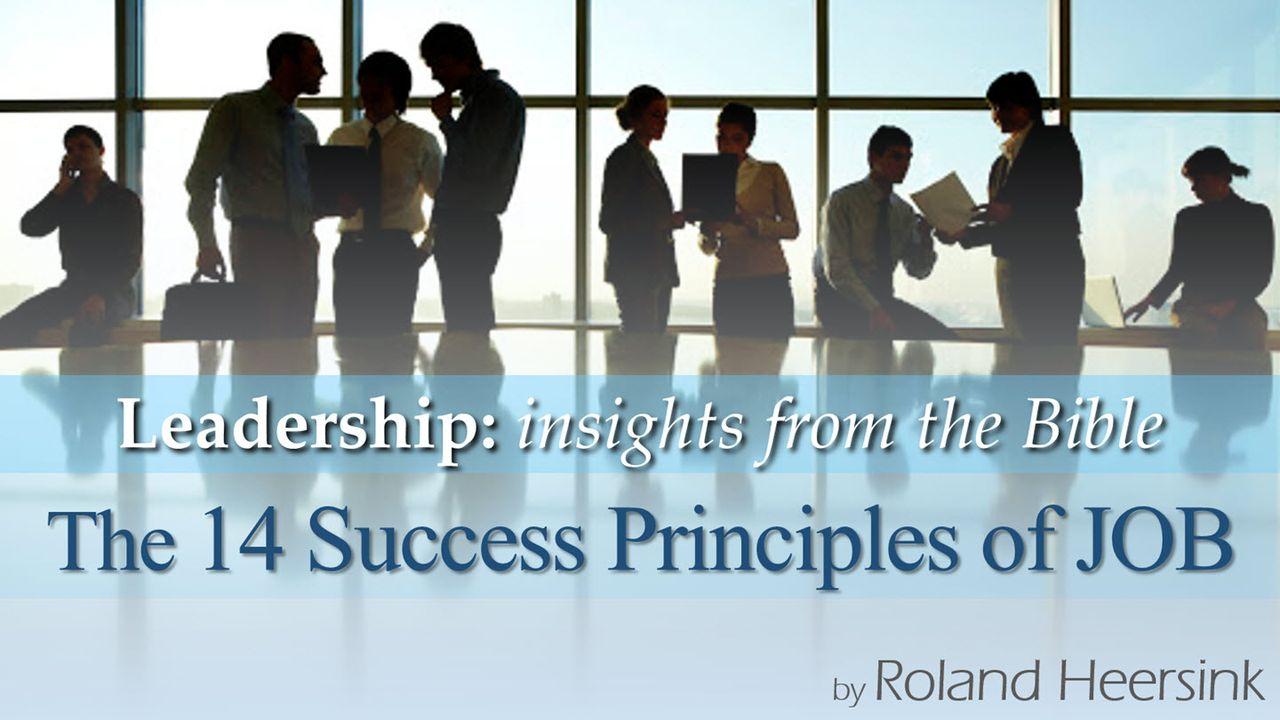Leadership: The 14 Success Principles of JobMuestra

8. No Trust in Wealth
As the wealthiest man of his time, Job had more reason than most to place his trust in wealth. After all, he had worked hard to build it up over many years, and it had provided a joyful and fruitful life for him.
But even as he has lost it all, Job reflects on his eighth principle for business and leadership with satisfaction:
If I have put my trust in gold or said to pure gold, ‘You are my security…’ – Job 31:24
Job’s eighth principle for leadership and business success: “No Trust in Wealth.” Remember what Job said on the day he lost his wealth?
“…The Lord gave and the Lord has taken away; may the name of the Lord be praised.” – Job 1:21
In today’s terms, Job would see himself as a steward of the wealth God granted him; it was not his to do with as he pleased. So, even as he went from the world’s richest person to a pauper in a single day, he could still praise God.
In fact, Job was behaving exactly like the Apostle Paul encouraged the new believers to do some two thousand years later in the New Testament:
Command those who are rich in this present world not to be arrogant nor to put their hope in wealth, which is so uncertain, but to put their hope in God, who richly provides us with everything for our enjoyment. – 1 Timothy 6:17
It’s easy to say you agree with Job’s principle of not trusting wealth, but has that been put to the test? In many western societies, culture says you can be successful if you try. It’s all about how you use your resources to provide for yourself. Some people even quote the Bible in support of these beliefs, quoting verses like these:
Each one should test their own actions. Then they can take pride in themselves alone, without comparing themselves to someone else, for each one should carry their own load. – Galatians 6:4-5
and
For even when we were with you, we gave you this rule: “The one who is unwilling to work shall not eat.” – 2 Thessalonians 3:10
Based on these verses, many say you should work hard to take care of yourself, and if you just believe and try hard enough, God will bless you with great success also.
As if you can just take care of your own success with some prayer and hard work! But the Bible doesn’t teach that and neither does it teach that we should trust any wealth we might generate.
Rather, the Bible says quite the opposite, and supports Job’s principle of not trusting wealth but living righteously:
Those who trust in their riches will fall, but the righteous will thrive like a green leaf. – Proverbs 11:28
Just like Job, you are only a steward of any wealth given by God. In doing so, keep your trust in God and retain your ability to praise Him in all circumstances, even total loss.
Just like Job.
Reflection / Application
- Have you ever trusted your wealth or ability to generate wealth more than you trusted God? How did that happen?
- If you have been provided any wealth or material abundance, would others see you more as the owner or the steward of that wealth? How would they notice?
- Can you praise God even if you suffer loss? Have you ever done that?
Acerca de este Plan

Job may be one of the more difficult (or comforting!) books of the Bible, depending on your situation. But right in the middle of the book, Job outlines his secret for success – giving step-by-step insights into 14 key business and leadership principles that took him from Total Loss to Double Success, and in good standing with God Himself. Learn these lessons to bless others and yourself!
More
Planes relacionados

Encontrando Esperanza en La Oscuridad

El Amor de Pareja Según Dios

Perseverar: Hechos 2

El Jesús Que Eligió Acercarse – Inspirado en "The Chosen"

Huellas en El Polvo: Reflexiones Para Peregrinos

No Te Pierdas En Tus Emociones- La Metáfora Del Bosque

7 Días En Busca De Dios.

La Gracia. 7 Claves Para Vivir en Plenitud.

Nuevo Comienzo. 8 Pasos Para Ser Más Disciplinado.
